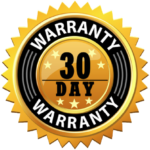Vendor Evaluation: How to Choose a Trusted Safety Barrier Supplier
When purchasing portable safety barriers or barricades, your choice of vendor is just as important as the product itself. A trustworthy supplier ensures you’re not only getting a compliant, high-quality product—but also the support, documentation, and long-term reliability you need.
The wrong vendor can expose you to hidden risks like non-compliant products, poor after-sales service, long lead times, or untested materials. Here’s how to evaluate a barrier supplier with confidence.
What to Look for in a Vendor
✅ Industry Experience & Specialization
Seek vendors with proven experience in safety barriers—not just general equipment resellers. A specialized vendor will:
- Understand your specific use case
- Recommend the best-fit product, not just what’s in stock
- Provide accurate specs, compliance documents, and setup support
Ask: How long have they been in business? Do they serve municipalities, contractors, or event managers regularly?
✅ Compliance Transparency
A reputable vendor will provide:
- MUTCD, OSHA, and ADA compliance documentation
- Testing certifications (ASTM, ANSI, etc.)
- Clear labeling and product data sheets
If a vendor dodges compliance questions or can’t provide documentation, that’s a red flag.
✅ Support and Responsiveness
Look for vendors who act as partners, not just sellers:
- Can they offer expert recommendations for your environment?
- Do they provide deployment guides, manuals, or training?
- What’s their policy for replacements or damaged items?
Fast, knowledgeable support is especially critical during events or emergencies.
✅ Reviews, Case Studies & References
Third-party reviews, customer testimonials, or public case studies can reveal:
- Delivery reliability
- Product durability over time
- Customer service experience
If you’re unsure, ask for references—especially for large or long-term deployments.
✅ U.S.-Based Inventory and Supply Chain Strength
In times of supply chain disruption, U.S.-based inventory and domestic support give a major advantage. Check:
- Are products stocked in the U.S., or drop-shipped from overseas?
- Can they ship quickly in case of emergency or bulk need?
- Do they offer consistent product availability for reorders?
Watch Out for These Red Flags
❌ No product documentation
❌ Poor website or vague product specs
❌ Pushy sales tactics or hard-to-reach reps
❌ Generic or copycat designs without proof of compliance
❌ Unrealistically low prices that suggest quality issues
Summary
A reliable vendor doesn’t just sell you a product—they help you solve safety problems. When you partner with a supplier that’s knowledgeable, transparent, and responsive, you reduce risk, improve safety, and save time and money in the long run.
FAQs
Q1: How do I know if a vendor is legitimate or just a dropshipper?
A1: Look for signs like branded inventory, U.S. warehouse locations, and detailed support materials. Legitimate vendors often offer warranties, manuals, and phone/email customer support.
Q2: Should I get a demo or sample before placing a large order?
A2: Yes—if possible. Many trusted vendors will offer a demo, photos of past deployments, or even sample units for evaluation. It’s a smart way to test usability, quality, and vendor responsiveness


